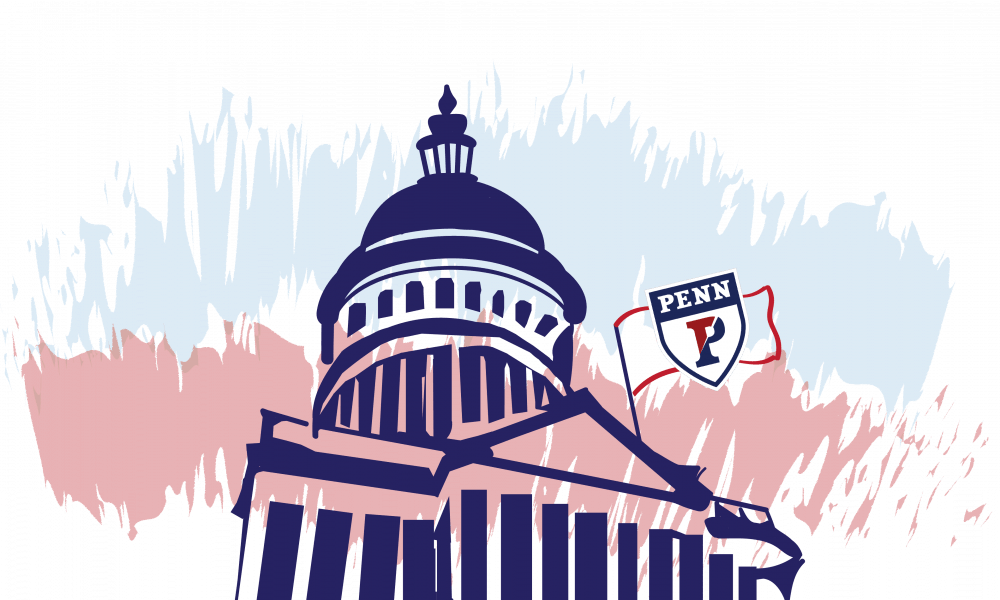
Winter break has drawn to a close as the spring semester, the New Year, and all the fresh beginnings they represent welcome us back to campus. But before losing ourselves in the demands — and fun — of our daily lives at Penn, let’s think about the world beyond West Philadelphia.
Whatever our personal triumphs over the last 12 months, 2017 was a truly tumultuous year on a national scale; political scandals, mass shootings, and unprecedented weather calamities occurred almost every few weeks without fail. To make matters worse, we have a president laughably inept at facing any of these issues without making a fool of himself.
Natural disasters, violent conflict, and political unrest have become the norm, with headlines delivered at lightning speed onto our screens through 24-hour news and social media. Processing such an enormous volume of depressing reports inevitably takes a toll on our psyches.
In fact, polls show that the average individual feels that the world is more than a bit out of control. The American Psychological Association’s new report, “Stress in America: The State of Our Nation” reveals that almost two-thirds of Americans — 63 percent to be exact — are extremely stressed about the future our country. Leading causes of anxiety include social divisiveness, hate crimes, terrorist attacks, and climate change.
Somewhat surprisingly, while we seem better informed and more emotional about the world than ever before, the very civic involvement which could give us some sense of control is transparently lacking. America citizens, particularly young people, have shown that they deeply distrust the government.
According to a Washington Post survey, conducted in the spring of 2016, “faith and confidence in the federal government among 18- to 29-year-olds is at a historical low: below 23 percent.”
And disturbingly, this dissatisfaction manifests itself as apathy, instead of translating into action. The Pew Research Center reports that America’s voter turnout per population is far “behind most of its peers in the Organization for Economic Cooperation and Development.”
So what does this have to do with any of us here at Penn?
While much of what happens in the world is beyond our control, being actively engaged in our communities can help us feel less helpless. If we’re not satisfied with the status quo, whether that's because of income inequality, racism, gun violence or a conviction that governments should be smaller and less involved in our lives, we must be engaged. At the very least, we must vote, and not only every four years in the presidential election, but also in congressional midterms, as well as state and local races.
For many of us, politics may seem irrelevant, but as the 2016 election showed, being politically apathetic in no way insulates us from the impact of elections.
And as members of an exceptional university, some of us should seriously consider becoming active politicians ourselves. I’ve noticed that many Penn students dream of becoming leaders in business, finance, or consulting, but few of us aim to take on leadership roles in politics. According to Career Services, only 3 percent of the Class of 2016 planned on working for the government after graduation.
I appreciate that it is a challenge to think about jumping into the swamp that so many are shouting about draining. But, I'd maintain that members of the Penn community are precisely the sorts of individuals that America needs now.
As students of a dynamic community that draws from all corners of the globe and many walks of life, we have all already been fortunate enough to be exposed to greater diversity than most Americans. We’ve learned not only to cope, but also to thrive. Some of us have already learned to harness our diversity to achieve great things together on campus and beyond.
So before we embark upon the new semester, before we get lost in the daily demands of classes, clubs, and camaraderie, let's take a moment to define a path through which each of us can help define a new more promising future for Penn, the United States of America and the world. As a first small step, I’d agree with University of Minnesota professor William Doherty who suggests we each “make an effort this year to reach out to a couple of people on the other side … Not to try to persuade them to change their mind, but to try to just understand them better.”
Perhaps this could lead to a future in which Penn has a graduate in the White House that it is proud of, instead of deeply ashamed.

SPENCER SWANSON is a College freshman from London, studying philosophy, politics, and economics. His email address is sswanson@sas.upenn.edu.
The Daily Pennsylvanian is an independent, student-run newspaper. Please consider making a donation to support the coverage that shapes the University. Your generosity ensures a future of strong journalism at Penn.
Donate







